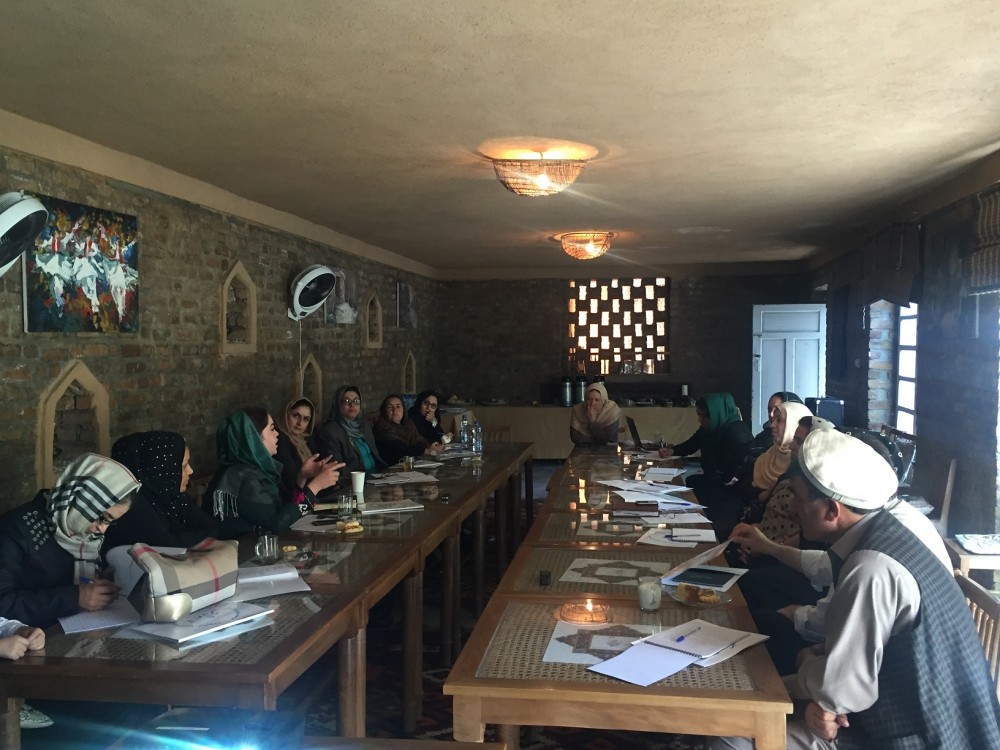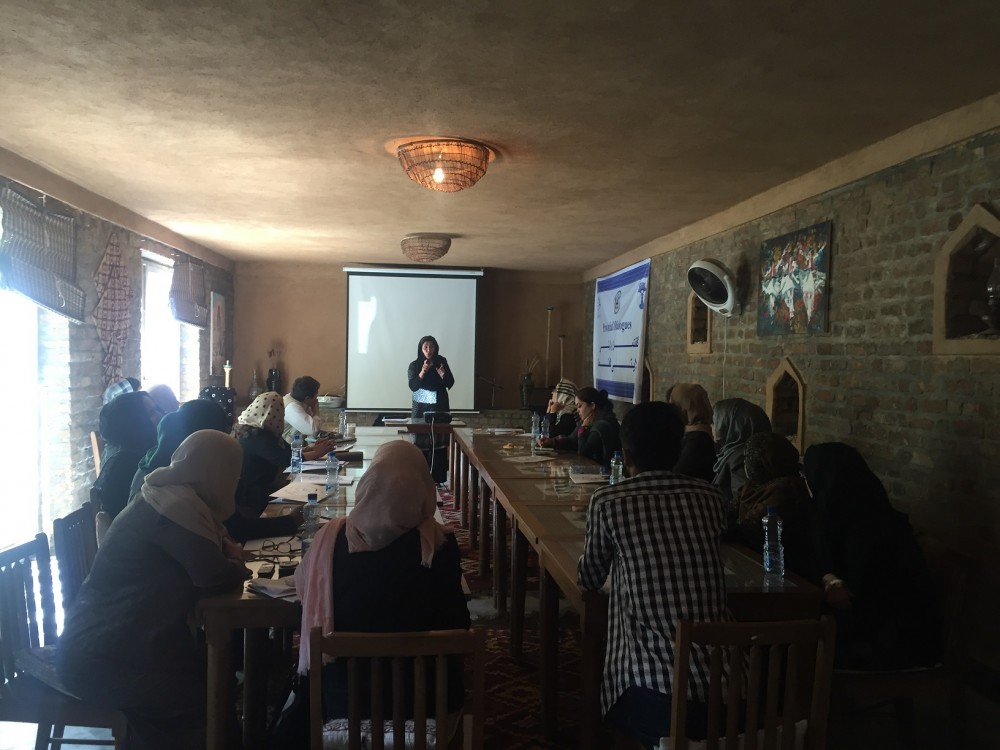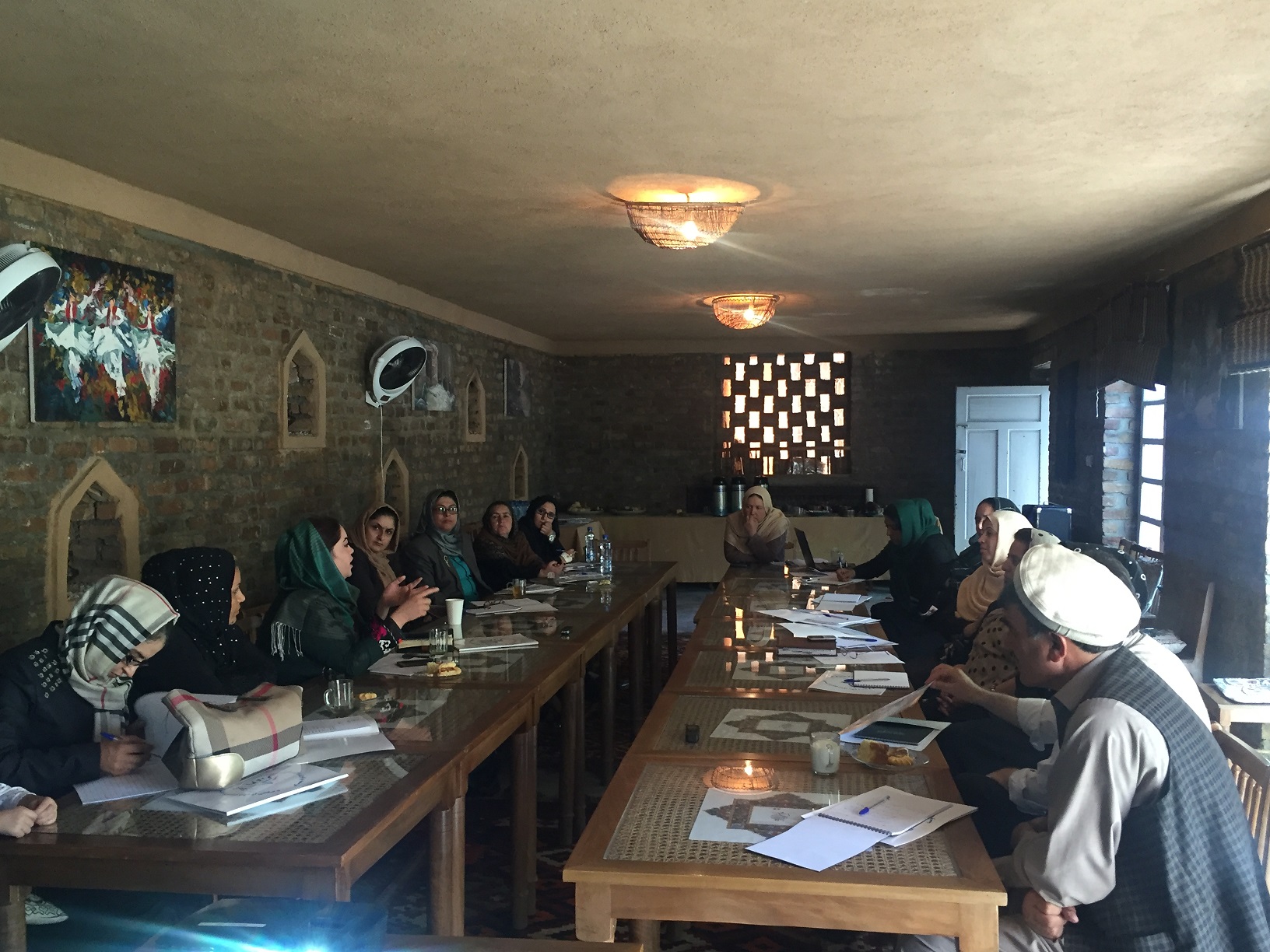 On 21 August 2016, Equality for Peace and Development (EPD) facilitated a provincial dialogue in Sufi Restaurant, Kabul. The event was designed to raise awareness about the role of women’s protection centers, and about the importance of women’s participation in the economy. The program brought together around 20 participants from different governmental and non-governmental institutions, including representatives of the Ministry of Women’s Affairs, the Ministry of Justice, the Independent Directorate of Local Governance (IDLG), the Kabul Governor’s Office, Provincial Council and civil society, as well as community elders and other influential people. As part of this dialogue, EPD and the Afghan Women’s Skills Development Center (AWSDC) presented information about EPDs recent projects relating to the assessment of markets and Women’s Protection Centers (WPCs) in Afghanistan.
On 21 August 2016, Equality for Peace and Development (EPD) facilitated a provincial dialogue in Sufi Restaurant, Kabul. The event was designed to raise awareness about the role of women’s protection centers, and about the importance of women’s participation in the economy. The program brought together around 20 participants from different governmental and non-governmental institutions, including representatives of the Ministry of Women’s Affairs, the Ministry of Justice, the Independent Directorate of Local Governance (IDLG), the Kabul Governor’s Office, Provincial Council and civil society, as well as community elders and other influential people. As part of this dialogue, EPD and the Afghan Women’s Skills Development Center (AWSDC) presented information about EPDs recent projects relating to the assessment of markets and Women’s Protection Centers (WPCs) in Afghanistan.
The program started with a presentation conducted by Ms. Zohra Nasrat (Program Officer at EPD). She gave an overview of the main findings of EPDs assessment of markets, entitled “Barriers to Women Entrepreneurs’ Access to Market”. According to the research, societal acceptance of women is the main barrier limiting gender inclusivity. Such intolerant norms have wide-reaching effects, restricting the ability of women to work outside of their home, to pursue their vocational interests and to own a property. While certain traditional professions are considered “women-friendly”, these mostly involve working from home; meanwhile, social discrimination weighs more heavily on women seeking to manage more sophisticated businesses, which typically is where women entrepreneurs must rely on family support. This dependence in some cases undermines the entrepreneurs’ role in decision-making in their own business. The research report is available in Dari, Pashtu and English.
 Following this, Ms.Ghutai Sahibian (Program Manager at Afghan Women’s Skills Development Center) presented the main activities of her organization in support of the residents of WPCs, in coordination with the Ministry of Women’s Affairs and the Ministry of Interior Affairs. AWSDC has conducted numerous rounds of literacy and skills trainings, as well as advocacies to support victims of violence at local, national and international levels.
Following this, Ms.Ghutai Sahibian (Program Manager at Afghan Women’s Skills Development Center) presented the main activities of her organization in support of the residents of WPCs, in coordination with the Ministry of Women’s Affairs and the Ministry of Interior Affairs. AWSDC has conducted numerous rounds of literacy and skills trainings, as well as advocacies to support victims of violence at local, national and international levels.
The participants were given the opportunity to share their ideas regarding female entrepreneurship, the role of women in providing financial support for their families and opportunities for women to start business, as well as challenges and approaches to reintegrate former residents of women’s protection centers into the community. During the discussion, Ms. Hamida Wardak (Head of Rawand Adalat and Shahr Banoo) argued that in spite of the challenges which they face, women do have the aptitude to run innovative and successful businesses. She added that for women to start a business, access to large financial source is not the essential prerequisite, so much as self-confidence and family support.
 The recent report underscores the fact that the lack of belief in the business acumen of women running a business or pursuing a trade is a serious setback to female entrepreneurs. EPD is confident that skills trainings and public awareness dialogues can promote women’s economic independence, and can help the residents of WPCs to reintegrate into society. Together with AWSDC, EPD plans to hold subsequent rounds of dialogues to exchange best practices among those working with WPCs, and to bring stakeholders together to improve the financial sustainability of these institutions.
The recent report underscores the fact that the lack of belief in the business acumen of women running a business or pursuing a trade is a serious setback to female entrepreneurs. EPD is confident that skills trainings and public awareness dialogues can promote women’s economic independence, and can help the residents of WPCs to reintegrate into society. Together with AWSDC, EPD plans to hold subsequent rounds of dialogues to exchange best practices among those working with WPCs, and to bring stakeholders together to improve the financial sustainability of these institutions.

